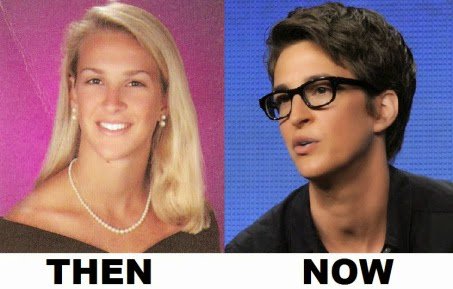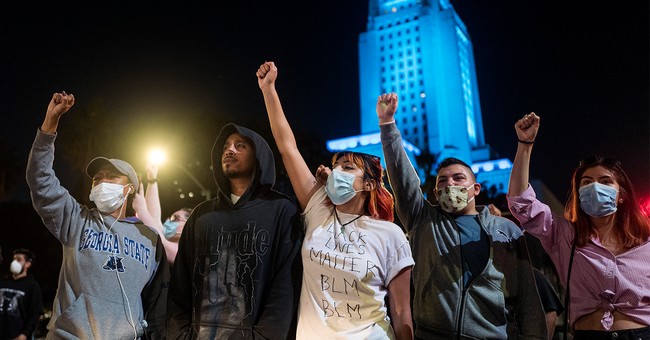Emmet Sullivan’s order welcoming amicus curiae briefs in a criminal case would cause a reasonable person to question Judge Sullivan’s impartiality.
Judge Emmet Sullivan must recuse from the Michael Flynn criminal case because he no longer maintains any semblance of impartiality.
On December 1, 2017, Flynn appeared before federal Judge Randolph Contreras and pleaded guilty to one count of making a false statement to FBI agents. Less than a week later, and without explanation, the case was reassigned to Sullivan, who has served as the presiding judge in the Flynn case since then.
Circumstances have long suggested that Judge Sullivan holds an anti-Flynn bias. After all, he once intimated during court proceedings that the retired lieutenant general had committed treason.
Then, when it came time to sentence Flynn, even though the government had touted Flynn’s extraordinary cooperation with the special counsel’s office to justify a no-jail time sentence, Sullivan indicated Flynn might well serve time behind bars if sentencing proceeded as planned. Flynn accepted Sullivan’s hint and requested a continuance to allow him to complete his cooperation with Special Counsel Robert Mueller’s office.
The delay proved providential because it allowed Flynn a chance to seek legal counsel outside his Covington and Burling lawyers, who had a serious conflict of interest. After the special counsel’s office closed, Flynn fired his Covington and Burling attorneys and hired Sidney Powell.
Indications that Judge Sullivan held an improper bias against President Trump’s former national security advisor continued to mount as Powell pushed forward. When she sought evidence from federal prosecutors, Sullivan slapped down the entire motion in a 99-page opinion, while gratuitously suggesting Powell had unethically “plagiarized” portions of her brief.
Judge Sullivan’s response to Powell’s complaint that the government had failed to provide the original FBI interview summary also struck an odd chord for a federal judge with a reputation for requiring fastidious compliance with the Brady rule—the rule that requires the prosecution to provide a defendant material exculpatory evidence. “Sometimes throughout the best efforts, notwithstanding the best efforts of everyone, things happen, and documents are lost,” the long-time federal judge opined.
The Bias Didn’t End There
While the original 302 interview summary of Flynn’s December 2016 conversation with the Russian ambassador has yet to turn up, other evidence has as the result of the independent review of the Flynn prosecution by Missouri-based U.S. Attorney Jeff Jensen. But when Powell presented this evidence to Sullivan, rather than respond with outrage over the government’s failure to produce the material earlier, Sullivan issued a terse order directing Powell to stop filing additional materials with the court until Jensen concluded his review.
Then when the U.S. attorney’s office filed a motion to dismiss the charge against Flynn, highlighting the previously withheld evidence and explaining how it established that Flynn had not committed a crime, rather than grant that motion Sullivan announced he would accept amicus curiae, or friend of the court, briefs from outside parties concerning the propriety of dismissal.
At that point, recusal under 28 U.S.C. § 455 was arguably required. Section 455 provides that “any justice, judge, or magistrate
judge of the United States shall disqualify himself in any
proceeding in which his impartiality might reasonably be questioned.” Sullivan’s order welcoming amicus curiae briefs in a criminal case would cause a reasonable person to question Judge Sullivan’s impartiality.
Declining Third Parties, Then Inviting Them
That is especially true given that when outsiders had previously attempted to file amicus curiae briefs in support of Flynn, Sullivan rejected the briefs, correctly noting that “Federal Rules of Criminal Procedure do not provide for intervention by third parties in criminal cases.”
“The Court recognizes that the movant sincerely believes that he has information to share that bears on this case, and that, understandably, he wishes to be heard,” Sullivan wrote, adding that “options exist for a private citizen to express his views about matters of public interest, but the Court’s docket is not an available option.”
But now that the government has uncovered evidence establishing the case against Flynn was concocted, Judge Sullivan welcomes “the intervention by third parties in criminal cases”?
Even if Sullivan’s order welcoming random amicus curiae into the fray didn’t cross the appearance-of-impartiality line, his order the following day appointing John Gleeson surely did. Gleeson, whom Sullivan handpicked, suggested in a Washington Post op-ed published the same day as his appointment that Sullivan should not dismiss the criminal charge against Flynn because “the record reeks of improper political influence.”
A reasonable observer would surely conclude that Sullivan’s selection of Gleeson—or at a minimum his failure to switch amicus curiae following the running of the op-ed—tells of a deep-seated bias against Flynn.
Court Asked to Make Sullivan Follow the Law
If that were still not enough under Section 455 to demand Sullivan’s recusal, the currently pending mandamus proceedings in the D.C. Circuit Court cement the conclusion that Sullivan can no longer fairly preside over the Flynn criminal case. Powell filed a petition for a writ of mandamus with the D.C. Circuit Court of Appeals a little over a week ago. In legal-speak, a writ of mandamus is an order by a higher court to a lower court to conform to the law. As I
explained last week, “it is not an appeal, but rather a separate proceeding which challenges a judge’s conduct.”
Mandamus proceedings are rare and appellate courts routinely dismiss petitions requesting a writ of mandamus out-of-hand, with the local court rules providing that “the court may deny the petition without an answer.” Occasionally, however, an appellate court will order “the respondent” to answer the petition.”
In the normal course, the respondent would be the opposing party who benefitted from the trial judge’s allegedly extrajudicial conduct, and the appellate court would thus name the opposing party the respondent. In those cases, the court could still allow the judge or a friend-of-the court to respond, with the local rules providing that the court of appeals may invite the “trial-court judge to address the petition or may invite an amicus curiae to do so.”
But in the Flynn case, and a smattering of others, both sides to the case find the judge’s conduct inappropriate. In those situations, there is no adverse “respondent” to argue against mandamus. Under the court rules, then, the court could order an answer from the judge or an amicus. An example of the latter is found in the Fokker case that the D.C. Circuit handed down a few years ago.
The Mandamus Order Also Poisons Sullivan’s Court
The Fokker case, like the Flynn case, involved a situation where both the government and a criminal defendant agreed on the disposition of a criminal case, but the trial judge balked. After the government filed a petition for mandamus, the D.C. Circuit in Fokker appointed an outside attorney to act as an amicus curiae, then went on to grant the petition, holding that “decisions to dismiss pending criminal charges — no less than decisions to initiate charges and to identify which charges to bring — lie squarely within the ken of prosecutorial discretion.” The Fokker court, however, did not invite the trial judge to answer the petition for mandamus, allowing him to stay on the sidelines of the dispute.
But the Flynn case is different. The D.C. Circuit court ordered Sullivan to answer the petition for mandamus by June 1, 2020. The three-judge appellate panel did not invite a response—it demanded one.
By doing so, the D.C. Circuit created an adversarial relationship between Judge Sullivan and the litigants before him. Sullivan’s retention of an outside attorney, Beth Wilkinson, to represent him further highlights the combatant position in which the supposedly neutral court now finds itself. (There was nothing
improper, however, in Sullivan’s hiring of Wilkinson.) There should be no question, then, that recusal is required under 28 U.S.C. § 455, which, again,
mandates recusal “in proceedings in which the judge’s impartiality might reasonably be questioned.”
Case Law Also Indicates Recusal Is Required
Because the Flynn case represents a sliver of the already miniscule mandamus cases meriting an answer, there is scant precedent on the recusal question. The sparse case law available, however, makes clear that recusal is required under Section 455.
In United States v. Craig, the defendants in an underlying lawsuit sought to disqualify the presiding judge, Judge Highsmith, pursuant to Section 455, “solely because he submitted a brief in response to the Eleventh Circuit Court of Appeals’ order directing him to answer the petition for write of mandamus.” That order, like the D.C. Circuit’s order, “directed Judge Highsmith to respond within 10 days and requested that he address two specific cases.” Judge Highsmith “promptly complied” with the directive.
After the Third Circuit resolved the mandamus question, the defendants sought recusal of Judge Highsmith, and the government agreed that “the court’s impartiality might be questioned since it personally responded to defendants’ mandamus petition.” The court agree and ordered recusal, citing the Third Circuit decision in Alexander v. Primerica Holdings, Inc..
In that case, the court concluded that a judge’s letter to the petitioner rebutting allegations in a petition for writ of mandamus raised an appearance of partiality. Also cited was the Rapp v. Van Dusen decision that modified the mandamus proceedings to eliminate the need for a judge to personally answer routine petitions for writs of mandamus and thereby avoid becoming an active party in the litigation.
This case law—and common sense—mandate Judge Sullivan’s recusal.
A New Judge Will Dismiss the Case
The question of recusal, however, may soon be mooted. If the D.C. Circuit grants Flynn’s petition for mandamus and orders dismissal of the criminal case, it will almost certainly reassign the case on remand to a different judge.
The new judge will then merely execute the appellate court’s mandate, i.e., dismiss the criminal case. That approach will remove the case from Sullivan’s courtroom without forcing the appellate court to declare Sullivan in violation of Section 455.
But the recusal issue could still rear its head if the appellate court does not also nix any attempt by Sullivan to hold Flynn in criminal contempt of court for perjury; or if the long-time federal judge decides to issue a flurry of rulings before the D.C. Circuit rules on the mandamus petition. Under either of those scenarios, Sullivan’s rulings would be subject to attack based on his failure to recuse under Section 455.
We should know within a week the likely outcome of the mandamus petition and then the next steps in this long-running legal battle.
 Article by Brad Stager in "RedState":
Article by Brad Stager in "RedState":













